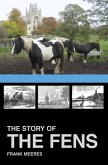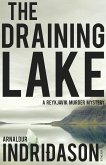2017 Choice Outstanding Academic Title The draining of the Fens in eastern England was one of the largest engineering projects in seventeenth-century Europe. A series of Dutch and English "projectors," working over several decades and with the full support of the Crown, transformed hundreds of thousands of acres of putatively barren wetlands into dry, arable farmland. The drainage project was also supposed to reform the sickly, backward fenlanders into civilized, healthy farmers, to the benefit of the entire commonwealth. As projectors reconstructed entire river systems, these new, artificial channels profoundly altered both the landscape and the lives of those who lived on it. In this definitive account, historian Eric H. Ash provides a detailed history of this ambitious undertaking. Ash traces the endeavor from the 1570s, when draining the whole of the Fens became an imaginable goal for the Crown, through several failed efforts in the early 1600s. The book closes in the 1650s, when, in spite of the project's enormous difficulty and expense, the draining of the Great Level of the Fens was finally completed. Ash ultimately concludes that the transformation of the Fens into fertile farmland had unintended ecological consequences that created at least as many problems as it solved. Drawing on painstaking archival research, Ash explores the drainage from the perspectives of political, social, and environmental history. He argues that the efficient management and exploitation of fenland natural resources in the rising nation-state of early modern England was a crucial problem for the Crown, one that provoked violent confrontations with fenland inhabitants, who viewed the drainage (and accompanying land seizure) as a grave threat to their local landscape, economy, and way of life. The drainage also reveals much about the political flash points that roiled England during the mid-seventeenth century, leading up to the violence of the English Civil War. This is compelling reading for British historians, environmental scholars, historians of technology, and anyone interested in state formation in early modern Europe. "Stunningly relevant and beautifully written . . . This remarkable book is about nation building, economics, and environmental and social history. It is thoroughly researched, and historian Ash tells his story in a compelling way that is accessible to any reader. Essential. All levels/libraries."-- Choice "Ash's book is a sound study of the drainage of one part of the southern fens over a period of less than a century that was without doubt the most formative era in its taming. It is well-written, informative, assiduously referenced with copious endnotes, and an excellent testimony to the wealth of documentation that survives in the archives."--Environment and History "An excellent contribution to the history of engineering projects, particularly from an environmental and political point of view."-- Metascience "This comprehensive account is likely to become the standard textbook for the history of the Fens. It is thoroughly researched, drawing on a wide range of printed material in addition to archival sources including court records, petitions, correspondence, and state papers."--Renaissance Quarterly "The book is certainly the account for our generation."--American Historical Review "Ash's work will long remain an essential account of these important events."--Journal of British Studies "Ash supplies a rousing narrative of 'improvement' schemes in the wetlands of eastern England, written in an engaging Whiggish style that imbues the early Stuart dynastic state."--Journal of Modern History
Hinweis: Dieser Artikel kann nur an eine deutsche Lieferadresse ausgeliefert werden.
Hinweis: Dieser Artikel kann nur an eine deutsche Lieferadresse ausgeliefert werden.








